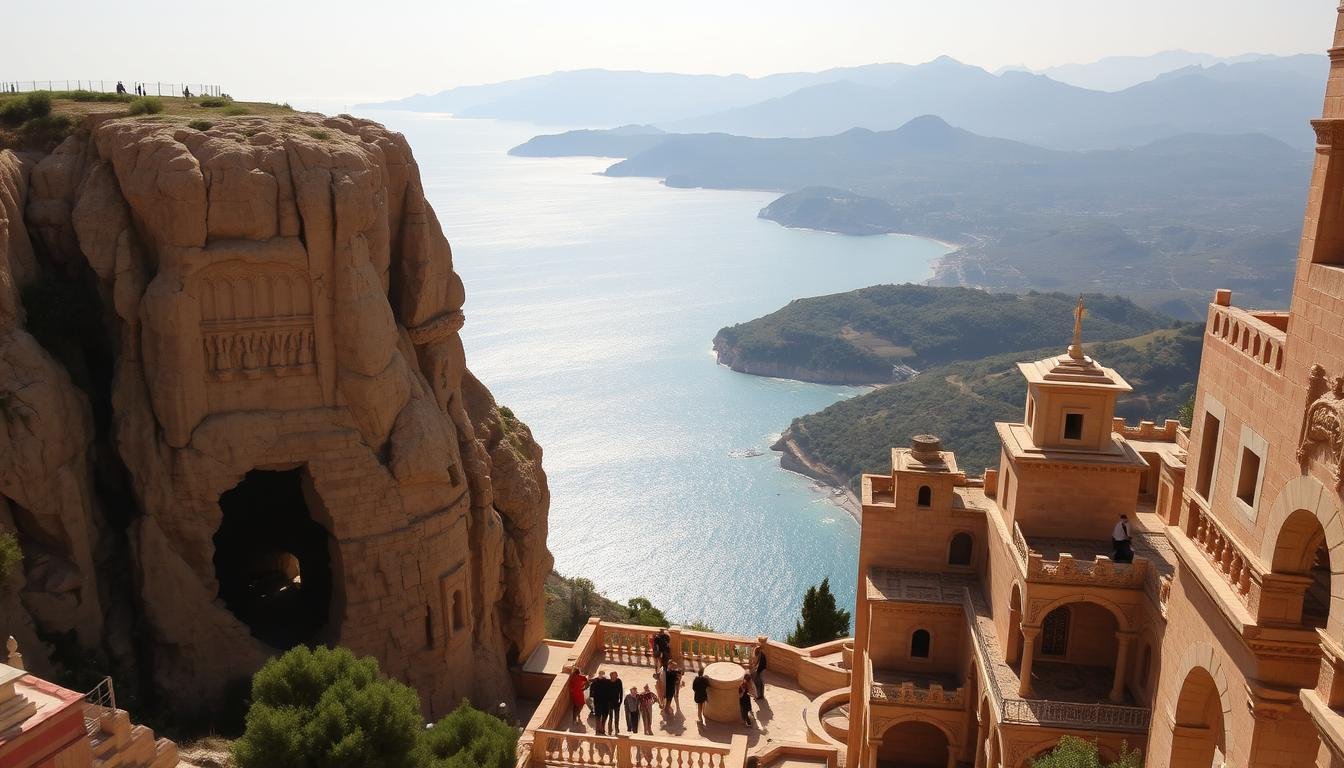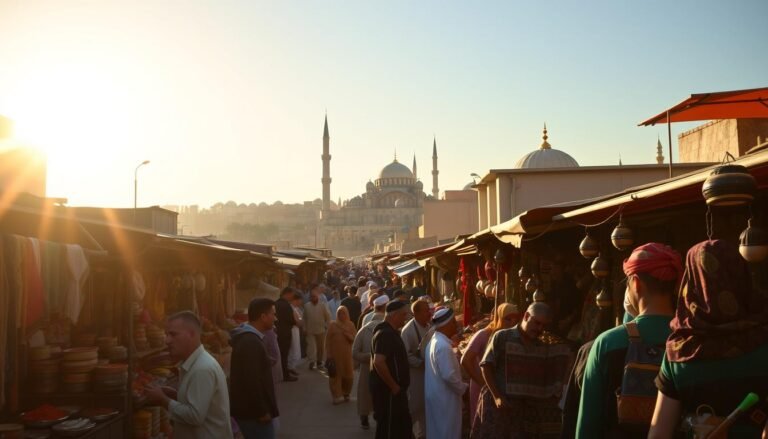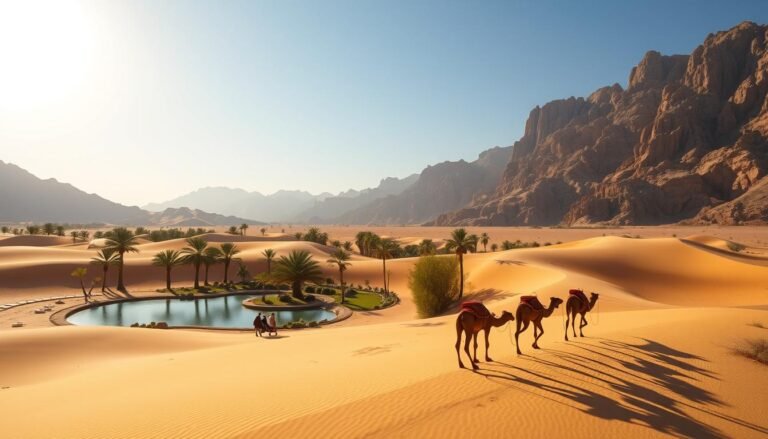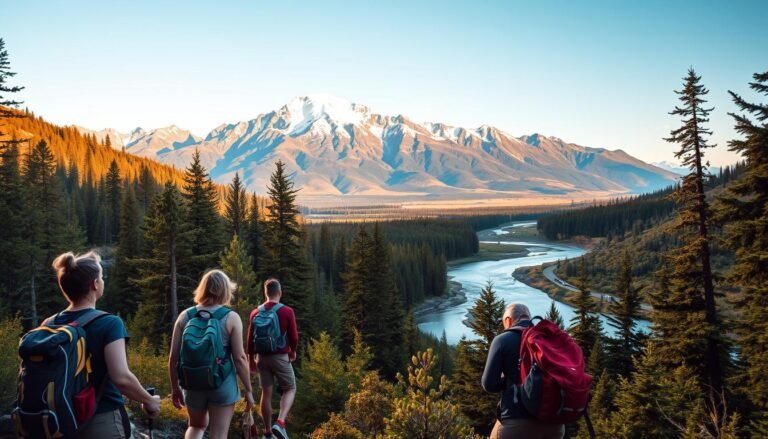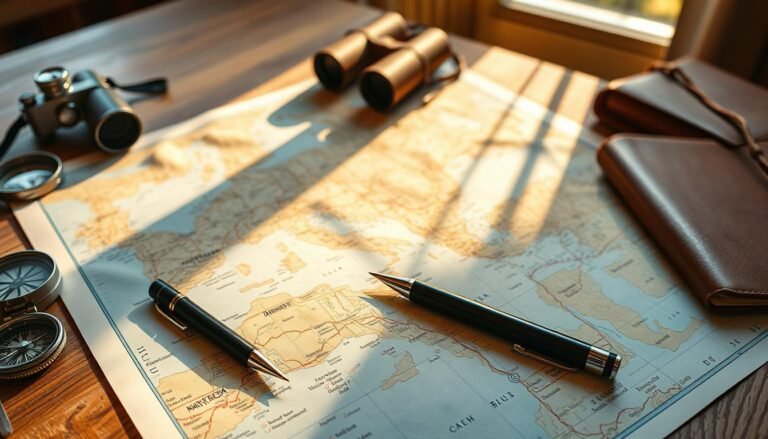Explore the Wonders of Lebanon: A Travel Guide
Travel to lebanon: Lebanon, a country with a rich cultural heritage, is a destination that offers a unique blend of history, landscapes, and vibrant cities. However, the current security situation remains unpredictable, with ongoing conflicts and airstrikes.
Despite these challenges, this comprehensive travel guide will help you navigate the country’s stunning landscapes and cultural attractions while providing essential safety information. We’ll explore the country’s geographic features, from the Mediterranean coastline to the cedar forests, and offer practical advice on planning your trip, including visa requirements and transportation options.
By understanding the local security situation and being aware of areas to avoid, you can have a safe and enjoyable journey through this fascinating country.
Lebanon at a Glance
As a crossroads of cultures and civilizations, Lebanon provides a wealth of information for visitors. This small country on the Mediterranean coast has a rich history, diverse culture, and stunning natural beauty, making it a fascinating destination for travelers.
Geographic Overview
Lebanon is characterized by its diverse geography, featuring mountains, valleys, and a coastline along the Mediterranean Sea. The country’s terrain has played a significant role in shaping its history and culture.
Cultural Significance
Lebanon’s cultural significance is deeply rooted in its history, which spans over 7,000 years. The country has been influenced by various civilizations, including the Phoenicians, who developed the first alphabet around 1500 BCE. This blend of cultures has created a unique cultural identity that continues to attract visitors from around the world.
Brief History
Lebanon’s history has not been without conflict. The country experienced a devastating civil war from 1975 to 1990, which reshaped its political landscape and physical infrastructure. Prior to this, Lebanon was ruled by various empires, including the Assyrians, Babylonians, Persians, Romans, Byzantines, Arab caliphates, and Ottoman Turks. Following World War I, Lebanon came under French mandate before gaining independence in 1943. Recent decades have seen the country face numerous challenges, including political instability, regional conflicts, economic crises, and the massive 2020 Beirut port explosion.
Current Travel Situation in Lebanon
Understanding the current travel situation in Lebanon is crucial for a safe trip. The country has specific areas that are considered high-risk due to various security concerns.
Safety Advisories and Warnings
The UK government’s Foreign and Commonwealth Development Office (FCDO) advises against all travel to certain areas in Lebanon. Areas south of the Litani River are considered particularly risky. This includes the cities of Tyre, Rachidiyeh, and Naqoura, where security concerns are heightened.
The FCDO also advises against all travel to the 12 Palestinian refugee camps throughout Lebanon due to security concerns and limited government control within these areas.
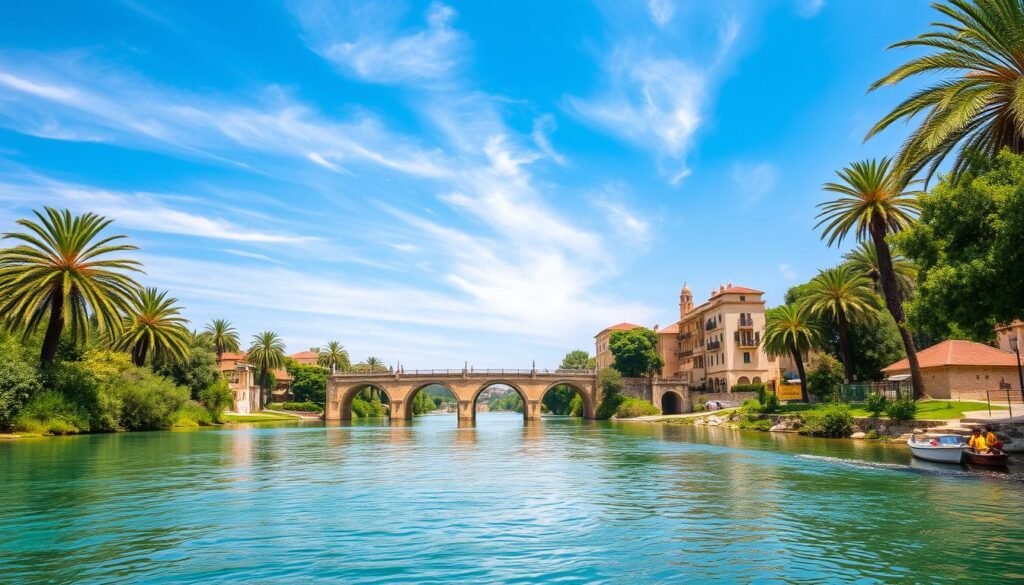
Areas to Avoid
Travelers should be aware of specific neighborhoods in Beirut that are subject to travel warnings. These include Tariq el Jdideh, Bir Hassan, Ghobeiry, and several other southern suburbs.
The northern city of Tripoli and the Akkar Governorate along the Syrian border should be avoided due to heightened security risks and potential for civil unrest.
| Area | Reason to Avoid |
|---|---|
| Areas south of Litani River | Heightened security risks |
| Palestinian refugee camps | Limited government control and security concerns |
| Northern city of Tripoli | Potential for civil unrest |
| Akkar Governorate | Heightened security risks near Syrian border |
Parts of the Baalbek-Hermel Governorate in eastern Lebanon near the Syrian border are considered high-risk areas with travel strongly discouraged.
Planning Your Travel to Lebanon
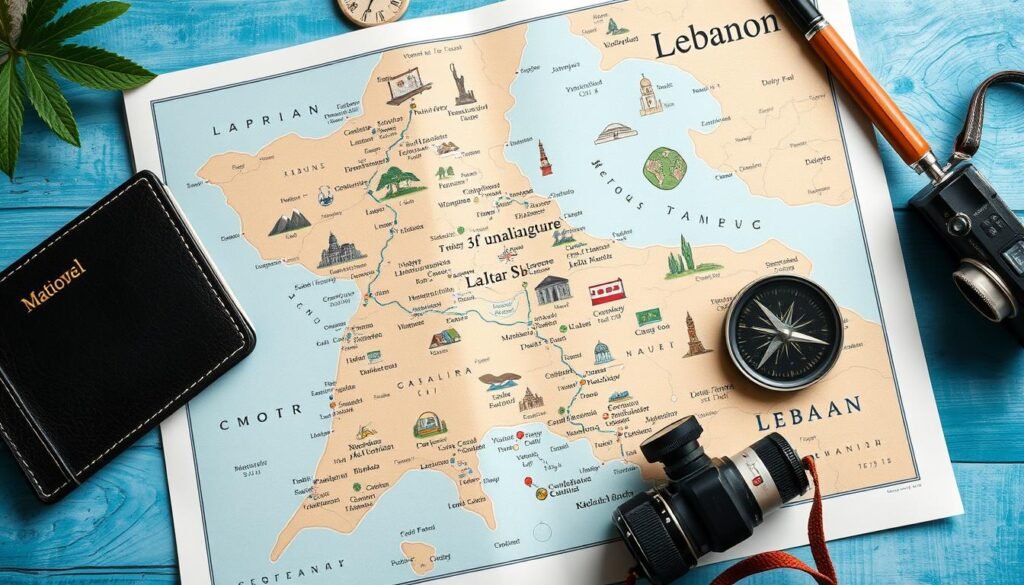
To ensure a smooth journey, it’s essential to plan your travel to Lebanon thoroughly. Lebanon is a country with a rich history and diverse landscapes, making it a fascinating destination for travelers.
Best Time to Visit
The best time to visit Lebanon is during the spring (March to May) and autumn (September to November), when the weather is mild and pleasant. These periods are ideal for exploring the country’s historical sites and enjoying outdoor activities.
Visa Requirements for UK Citizens
UK citizens need to obtain a visa before traveling to Lebanon. The process involves applying for a visa at a Lebanese embassy or consulate. It’s crucial to check the latest visa requirements and regulations before your trip.
Travel Insurance Considerations
Comprehensive travel insurance is absolutely essential when visiting Lebanon. Your policy should include coverage for emergency medical evacuation and repatriation. Most standard insurance policies exclude areas where government travel advisories warn against travel, so it’s vital to check policy exclusions related to security situations.
- Consider specialized insurance providers who offer coverage for high-risk destinations if your itinerary includes areas under travel warnings.
- Ensure your policy covers personal belongings, as petty theft can occur in crowded urban areas.
- Keep digital and physical copies of your insurance documents, including emergency contact numbers for filing claims while abroad.
Your travel insurance could be invalidated if you travel against advice from the Foreign, Commonwealth & Development Office (FCDO). Consular support is also severely limited where FCDO advises against travel.
Getting to and Around Lebanon
Getting to and around Lebanon requires some planning, but with the right information, you can navigate the country with ease. Lebanon’s transportation network is relatively developed, with various options available for travelers.
International Flights to Beirut
Lebanon’s primary international airport is Beirut Rafic Hariri International Airport (BEY), which receives flights from major airlines worldwide. Travelers from the UK can expect to find direct or connecting flights to Beirut, depending on the airline and time of year. It’s advisable to book flights in advance to secure the best rates.
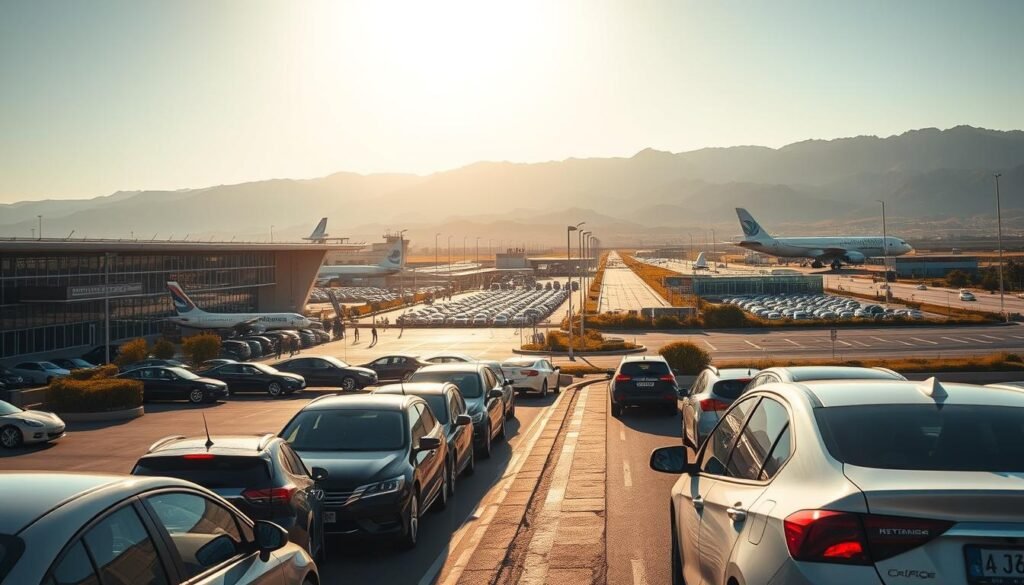
Local Transportation Options
Upon arrival, several local transportation options are available, including taxis, ride-hailing services, and rental cars. Taxis are readily available outside the airport terminals, but it’s recommended to agree on the fare before starting your journey. Ride-hailing apps like Uber and Careem operate in Beirut, offering a convenient alternative.
Road Safety and Driving Tips
If you plan to drive in Lebanon, be aware that the accident rate is high, and road safety can be a concern. Driving under the influence is strictly prohibited, and you risk being detained or fined if caught. To minimize risk, keep vehicle doors locked and valuables out of sight, especially when stopped at traffic lights. Additionally, avoid driving outside main cities at night due to variable road conditions and lack of lighting on some roads.
- Be cautious of aggressive driving styles and inconsistent adherence to traffic laws.
- Ensure you have an international driving permit and comprehensive insurance coverage if renting a vehicle.
Accommodation Options in Lebanon
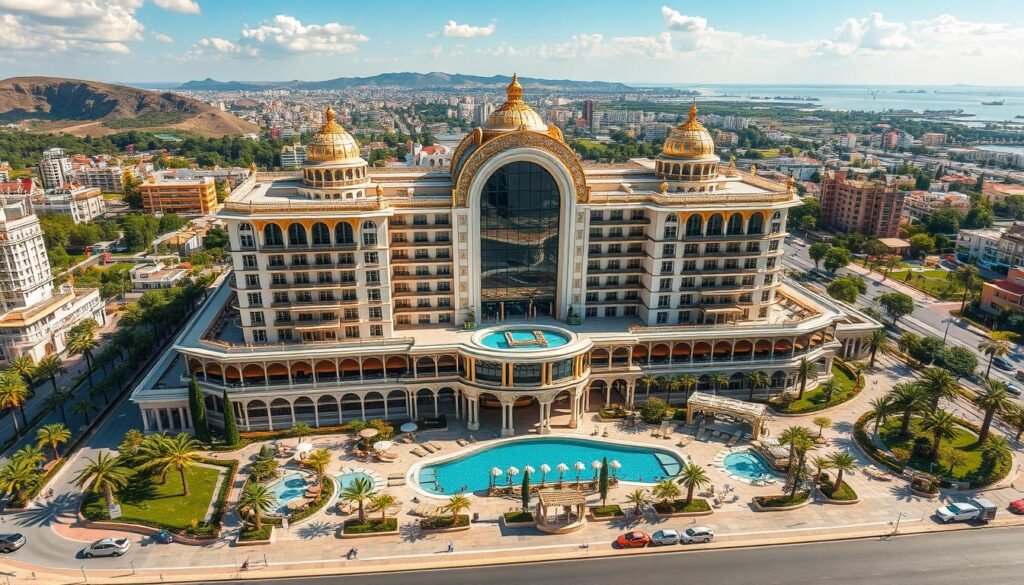
Whether you’re looking for luxury, boutique, or budget accommodations, Lebanon has something for everyone. The country’s capital, Beirut, is particularly well-equipped to cater to a wide range of travelers with its diverse accommodation options.
Luxury Hotels in Beirut
For those seeking a luxurious experience, Beirut offers high-end hotels that provide top-notch services and amenities. These hotels often feature elegant rooms, fine dining restaurants, and spas, ensuring a comfortable and relaxing stay in the heart of the city.
Boutique Guesthouses
Boutique guesthouses offer a more personalized experience, often with a unique charm that reflects the local culture. These establishments are ideal for travelers looking for a more intimate and character-filled accommodation.
Many boutique guesthouses are located in historic buildings, adding to their charm.
Budget-Friendly Options
Budget travelers can find affordable accommodations throughout Lebanon, with options ranging from hostels to family-run guesthouses and apartment rentals. Beirut’s Hamra district is particularly popular among students and backpackers, offering numerous budget hotels and hostels with convenient access to restaurants, shops, and nightlife.
- Saifi Urban Gardens in Beirut combines hostel accommodations with Arabic language classes, creating a community atmosphere.
- Coastal towns like Batroun and mountain villages offer guesthouses at significantly lower rates than in Beirut.
- Online booking platforms and vacation rental services have expanded budget options throughout Lebanon.
Exploring Beirut
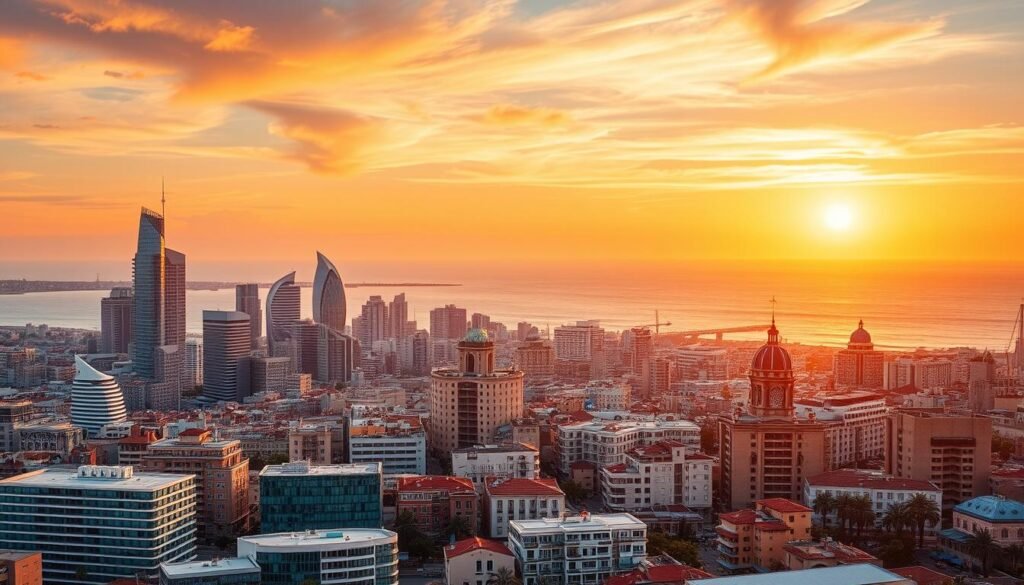
Beirut, the capital of Lebanon, is a city that seamlessly blends ancient history with modern vibrancy. As visitors explore this captivating city, they are greeted by a mix of historical landmarks, lively neighborhoods, and a thriving culinary scene.
Historical Sites in the Capital
Beirut is home to numerous historical sites that reflect its rich past. The city’s history is palpable in areas like the Beirut Central District, where ancient ruins stand alongside modern architecture. Visitors can explore the National Museum of Beirut, which houses a vast collection of artifacts that tell the story of Lebanon’s history and culture.
Beirut’s Vibrant Neighborhoods
The city’s neighborhoods are a testament to its vibrant character. Gemmayzeh and Mar Mikhael are known for their trendy bars, cafes, and boutiques, making them hotspots for nightlife and socializing. Meanwhile, Hamra offers a more laid-back atmosphere, with its charming streets lined with shops and eateries.
Nightlife and Dining Scene
Beirut’s nightlife is legendary, with areas like Armenia Street transforming into vibrant corridors of bars and casual eateries after dark. The city’s dining scene is equally impressive, with Zaitunay Bay offering upscale waterfront restaurants serving Mediterranean cuisine. Visitors can also experience the city’s culinary delights at seasonal events like Souk el Akel, a food market showcasing Lebanon’s street food traditions.
Whether you’re interested in history, looking to explore new areas, or eager to participate in local events, Beirut has something for every kind of traveler. The city’s unique blend of tradition and modernity makes it a fascinating destination for travel.
Lebanon’s Natural Wonders
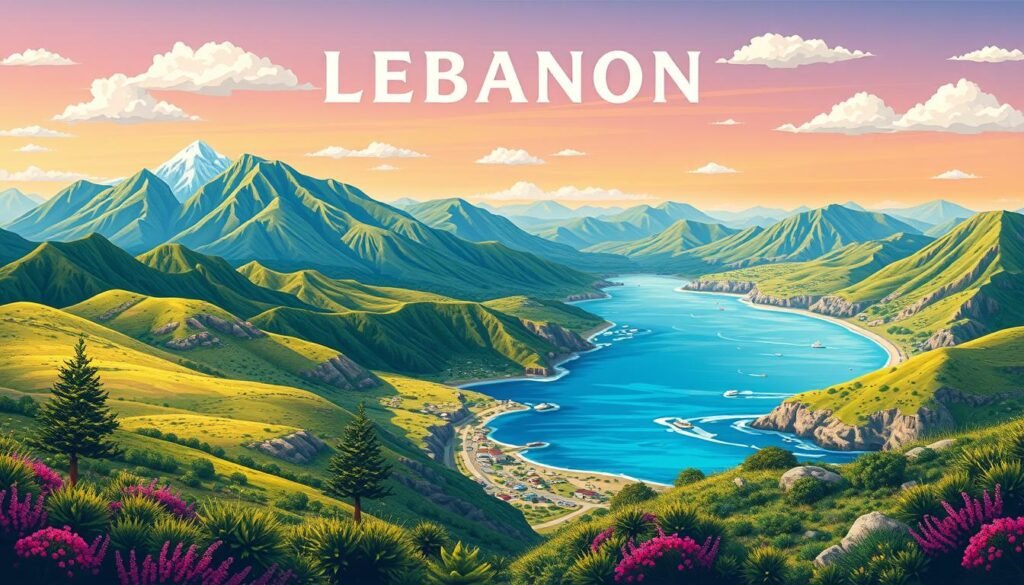
From ancient forests to stunning coastlines, Lebanon’s natural beauty is a treasure trove for explorers. The country’s diverse geography has created a range of natural attractions that cater to different tastes and preferences.
The Cedar Forests
Lebanon’s cedar forests are a symbol of the country’s natural heritage. These ancient trees, mentioned in the Bible, are a must-see attraction. The Cedar Reserve is a UNESCO World Heritage Site and home to some of the oldest and most majestic cedar trees in the world.
Jeita Grotto
Jeita Grotto is a stunning natural wonder located near Beirut. This limestone cave is one of the largest in the world and features an impressive array of stalactites and stalagmites. Visitors can take a boat ride through the cave’s underground river, marveling at the natural beauty surrounding them.
Beaches and Coastal Areas
Lebanon’s 225km Mediterranean coastline offers a diverse range of beach experiences. From developed resort areas to secluded coves accessible only by boat, there’s something for everyone. The Batroun district features some of Lebanon’s cleanest beaches, with the ancient Phoenician sea wall and clear waters making it a favorite weekend destination. Tyre’s public beaches in the south, north of the Litani river, offer golden sands and archaeological ruins, though visitors should stay on established paths due to safety concerns in some rural areas. When traveling to these areas, it’s essential to be aware of the risks, such as unexploded ordnance, particularly in the South and Beqaa Valley.
Other notable beach destinations include Rabbit Island (Palm Island Nature Reserve) near Tripoli, which provides a pristine beach experience on an uninhabited island accessible by boat during summer months. Beach clubs are also popular along the coast from Beirut to Byblos, offering facilities, restaurants, and water sports with day-use fees typically ranging from $20-40 per person.
Historical Treasures of Lebanon
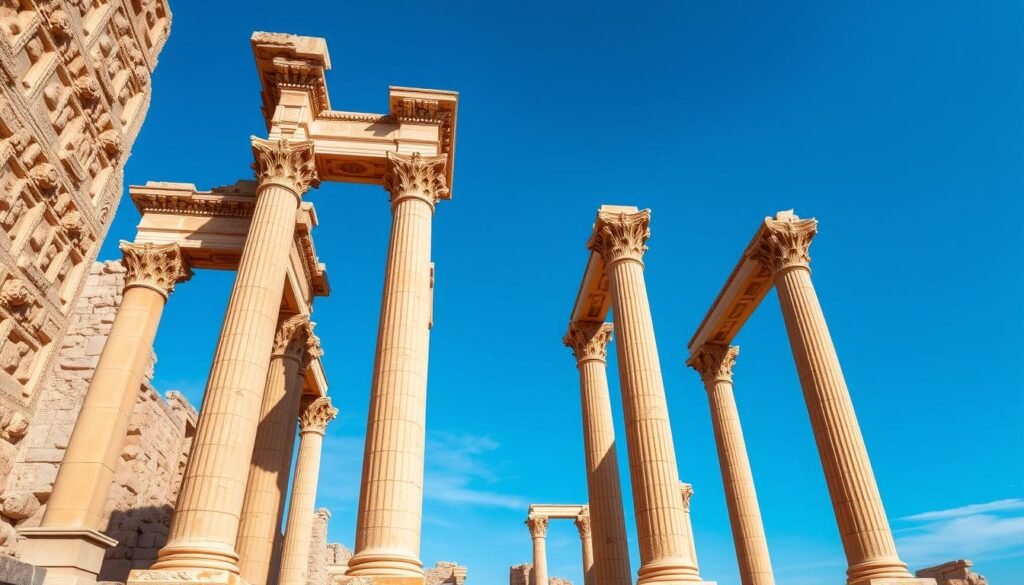
From ancient ruins to historical ports, Lebanon’s historical treasures are a testament to its cultural significance. The country’s rich history is evident in its numerous archaeological sites, each telling a story of the civilizations that once flourished there.
Baalbek Roman Ruins
The Baalbek Roman Ruins are a marvel of ancient engineering, featuring some of the largest and most impressive Roman temples in the world. The site is a UNESCO World Heritage site and attracts visitors from around the globe.
Byblos Ancient Port
Byblos, one of the oldest continuously inhabited cities in the world, boasts an ancient port that has seen the rise and fall of various civilizations, including the Phoenicians and Romans. The city’s historic harbor is now a popular spot for yacht cruises and exploration.
Sidon and Tyre Archaeological Sites
Sidon and Tyre are two coastal cities that are steeped in history and feature remarkable archaeological sites. Tyre, located south of the Litani River, contains impressive Roman ruins, including one of the largest and best-preserved Roman hippodromes in the world. Sidon’s Crusader Sea Castle and old souks offer a glimpse into the city’s medieval past.
Before planning a visit to these sites, especially those in the south, travelers should check the latest travel advisories due to current restrictions in areas south of the Litani River.
For the most accurate and up-to-date travel information, it’s advisable to consult official government websites or travel guides. Lebanon’s historical treasures are a significant part of its appeal, offering a rich cultural and historical experience for visitors.
Lebanese Cuisine and Dining

Lebanese cuisine is a rich tapestry of flavors, reflecting the country’s diverse cultural heritage. For travelers, experiencing local dining is an essential part of the journey, offering a taste of the region’s history and traditions.
Must-Try Traditional Dishes
Lebanese cuisine boasts a variety of traditional dishes that are a must-try for any visitor. From the creamy texture of hummus to the flavorful tabbouleh, each dish is a reflection of Lebanon’s rich culinary heritage. Don’t miss trying kibbeh, a dish made from ground meat and bulgur, often served raw or fried.
Street Food Experiences
Street food is an integral part of Lebanese dining culture. Visitors can enjoy a range of snacks, from juicy shawarma to crispy falafel, at street stalls and local eateries. The aroma of freshly baked ka’ak bread is irresistible, and it’s a great accompaniment to many street foods.
Fine Dining Recommendations
For a more upscale dining experience, Lebanon’s fine dining restaurants offer a contemporary twist on traditional cuisine. Em Sherif in Beirut is renowned for its opulent setting and extensive menu featuring over 30 traditional dishes.
Other notable mentions include LIZA Beirut, with its elegant presentation, and Baron, known for its vegetable-forward menu. Reservations are essential for these popular establishments, and concierge services at major hotels can assist in securing tables.
For travelers seeking information on the best dining spots and culinary experiences, Lebanon’s diverse culinary landscape has much to offer. Whether you’re looking for a casual meal or a luxurious dining experience, Lebanon’s restaurants and eateries provide excellent travel experiences. Additionally, many restaurants offer valuable services, from catering to cooking classes, enhancing your culinary journey.
Cultural Experiences and Festivals

Experience the essence of Lebanon through its myriad cultural experiences and festivals that dot the calendar. Lebanon’s diverse cultural landscape is reflected in its numerous events, offering something for every interest.
Traditional Arts and Crafts
Lebanon’s rich cultural heritage is evident in its traditional arts and crafts. Visitors can explore local workshops where artisans skillfully create intricate pottery, delicate textiles, and ornate jewelry. These crafts not only showcase the country’s artisanal skills but also provide a glimpse into its historical traditions.
Music and Performance
The country’s vibrant music and performance scene is another highlight of its cultural offerings. Festivals like the Beiteddine Art Festival and the Baalbek International Festival host a range of performances, from traditional Lebanese music to international acts. These events transform historic venues into dynamic stages, enhancing the cultural experience.
Seasonal Celebrations
Lebanon’s cultural calendar is filled with seasonal celebrations that reflect its diverse faith communities. Visitors can witness Holy Week processions, Ashura commemorations, and Eid celebrations, each offering a unique insight into the country’s religious and cultural practices. Additionally, events like Vinifest showcase Lebanon’s growing wine industry, while Beirut Design Week and Beirut Art Fair highlight the country’s contemporary creative scene.
Day Trips from Beirut
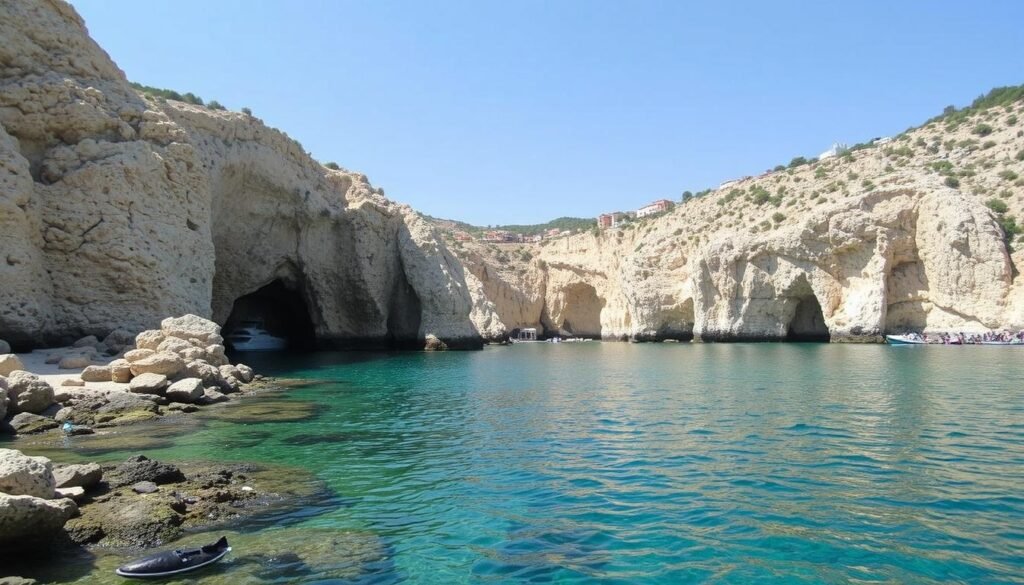
From ancient ruins to stunning natural landscapes, Beirut is the perfect starting point for your adventures. The city serves as an ideal base for exploring Lebanon’s rich history and natural beauty, with numerous day trip options available.
Byblos and Harissa
Byblos, one of the oldest continuously inhabited cities in the world, is a must-visit on any day trip from Beirut. This ancient city boasts a rich history, with archaeological sites, a vibrant souk, and a picturesque harbor. Nearby, the Harissa mountain offers breathtaking views of the Mediterranean and is home to the iconic Our Lady of Lebanon statue.
Jeita Grotto and Jounieh
For those interested in natural wonders, Jeita Grotto is a stunning limestone cave system that offers an unforgettable experience. Just a short drive away, Jounieh is known for its beautiful beaches, vibrant nightlife, and the iconic Harissa mountain.
Batroun and the North Coast
Batroun, a charming coastal town 50km north of Beirut, features a Phoenician sea wall, a well-preserved old souk, and some of Lebanon’s cleanest beaches. The town has emerged as Lebanon’s craft beer capital, with Colonel Brewery offering tours and tastings in a relaxed garden setting. Nearby Anfeh preserves traditional salt production methods on its distinctive blue and white shoreline, creating scenes reminiscent of Greek islands. The coastal roads offer spectacular Mediterranean views, with numerous seafood restaurants built on platforms extending over the water. Local lemonade stands serve Batroun’s famous refreshment made with local citrus, sugar, and orange blossom water – a must-try regional specialty.
For travel enthusiasts, Batroun provides a unique blend of history, culture, and natural beauty, making it an ideal day trip destination. Visitors can enjoy information about the local history and culture at the town’s museums and historical sites.
Safety and Security Tips for Lebanon Travel
To ensure a safe and enjoyable trip to Lebanon, understanding the local safety and security landscape is essential. Travelers should be aware of the current situation and take necessary precautions to minimize risks.
Staying Informed About Regional Developments
It’s crucial to stay updated on local news and government advisories. Protests and demonstrations can turn violent with little warning, and the Embassy strongly advises against participating in or being near such gatherings. If caught in a demonstration, avoid taking photos and leave the area immediately.
Emergency Contacts and Services
In case of an emergency, having the right contact information is vital. Make sure to register with your country’s travel advisory department to receive important safety and security updates. Keep a list of emergency contacts, including your embassy and local emergency services.
Cultural Sensitivities to Be Aware Of
Lebanon’s diverse religious communities have different cultural practices. When visiting religious sites, dress modestly, covering shoulders and knees, and sometimes hair in mosques. Avoid photographing military installations, checkpoints, or government buildings, as this can lead to questioning or detention. Public displays of affection may be frowned upon, especially outside Beirut. Be sensitive when discussing politics or regional conflicts, and avoid expressing strong opinions.
During Ramadan, daily rhythms in Muslim areas change, with reduced daytime dining options and increased evening social activity. Being respectful of these practices can enhance your experience and interactions with locals.
By staying informed, being aware of cultural sensitivities, and knowing what to do in emergencies, you can have a safe and enjoyable trip to Lebanon.
Practical Travel Information
When traveling to Lebanon, it’s essential to be prepared with practical information to make the most of your trip.
Currency and Money Matters
Lebanon’s local currency is the Lebanese Pound (LBP), although US dollars are widely accepted. It’s advisable to have some local currency for smaller transactions. Credit cards are widely accepted in major cities like Beirut, but cash is preferred in more rural areas.
| Currency | Exchange Rate | Acceptance |
|---|---|---|
| Lebanese Pound (LBP) | Variable | Widely accepted |
| US Dollar (USD) | N/A | Widely accepted in major cities |
Communication and Internet Access
Lebanon has a well-developed telecommunications infrastructure, with several providers offering mobile and internet services. Internet access is generally good, especially in Beirut, where many cafes and restaurants offer Wi-Fi.
Tip: Consider purchasing a local SIM card for easier communication during your stay.
Health Considerations
Lebanon has excellent private healthcare facilities, particularly in Beirut, but medical costs can be high, making comprehensive travel insurance essential. Pharmacies are well-stocked, and pharmacists often speak English.
- Ensure you have comprehensive travel insurance that covers medical emergencies.
- Stick to bottled water for drinking and be cautious with ice in beverages.
- Stay hydrated and limit sun exposure during peak hours, especially in the summer.
- In case of a serious medical emergency, contact your insurance provider’s emergency assistance service before seeking treatment.
It’s also worth noting that consular support is limited where travel advisories are in place, so it’s crucial to stay informed.
Conclusion: The Enduring Appeal of Lebanon
Despite facing numerous challenges, Lebanon remains a fascinating destination for travelers willing to explore beyond the headlines. The country’s rich history and cultural heritage are evident in its ancient sites, vibrant neighborhoods, and renowned hospitality. To travel responsibly in Lebanon, one must be aware of the regional security situation and respect local customs. With proper preparation and reasonable precautions, exploring Lebanon can be a transformative journey through one of the Middle East’s most captivating countries.

